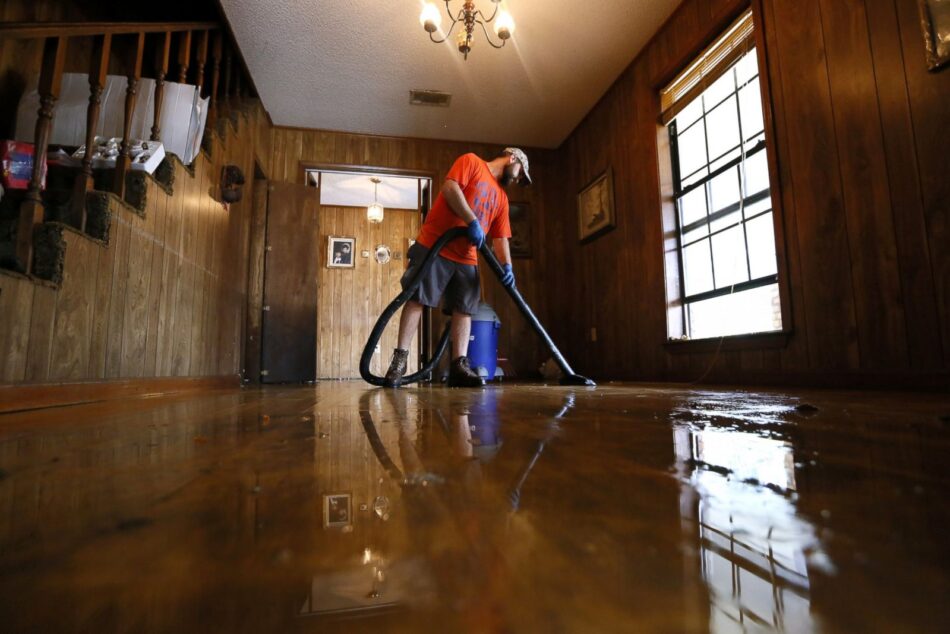Living in Brooklyn, it’s not uncommon to encounter Water Damage due to unpredictable weather, aging infrastructure, or accidental leaks. The temptation to delay repairs or ignore the issue altogether is understandable—life gets busy, and sometimes the damage doesn’t seem too serious at first. However, neglecting to replace or repair areas affected by Water Damage can set off a cascade of problems, some of which can spiral into costly repairs, health concerns, and legal headaches.
Why Immediate Action Matters
Water Damage rarely sits quietly in the background. Beneath the visible stains or peeling paint, moisture seeps into structural materials, setting off chemical reactions and biological growths that threaten the safety and comfort of your home. Let’s break down what’s at stake if you don’t replace damaged materials or treat the underlying issues:
| Problem Area | Short-Term Consequence | Long-Term Risk |
|---|---|---|
| Walls & Ceilings | Stains, bubbling paint, minor odors | Mold infestation, structural weakening, collapse risks |
| Flooring | Cupping, warping, slipperiness | Rot, dangerous trip hazards, floor replacement |
| Electrical Systems | Short-circuits, flickering lights | Fire hazard, total system failure, costly rewiring |
| Insulation | Loss of efficiency, higher bills | Chronic dampness, mold, energy waste |
Unseen Dangers Lurking Behind Water Damage
The most insidious threat from Water Damage comes from what you can’t see. Moisture trapped behind drywall or under floorboards creates a breeding ground for mold and bacteria. These microorganisms can spread rapidly, especially in Brooklyn’s humid summers, releasing spores that contaminate the air and threaten the health of everyone inside.
Unchecked Water Damage also attracts pests like termites and carpenter ants, which are drawn to damp wood. Over time, these pests can compromise your home’s structure, leading to repairs that are exponentially more expensive than early intervention would have been.
Financial Consequences of Ignoring Water Damage
One of the biggest misconceptions is that ignoring or delaying repairs is a way to save money. In truth, the costs increase the longer Water Damage is left unaddressed. Mold remediation, structural repairs, and replacing electrical systems can cost thousands more than a simple, timely fix.
| Service | Average Cost (Brooklyn) | When Needed |
|---|---|---|
| Basic Water Damage Cleanup | $1,200 – $2,500 | Within 48 hours of incident |
| Mold Remediation | $2,000 – $6,500 | If damage isn’t addressed for 7+ days |
| Structural Repairs | $5,000 – $20,000+ | Prolonged exposure, severe damage |
| Electrical System Replacement | $2,500 – $8,000 | If water reaches wiring or breaker panels |
Health Risks Amplified by Water Damage
Water Damage doesn’t just threaten your property—it can directly impact your health. Damp, moldy environments are linked to respiratory issues, allergies, and even long-term conditions like asthma. Children, seniors, and those with compromised immune systems are particularly vulnerable. Mold spores can spread invisibly through air vents, affecting every room in your home.
Additionally, bacteria from contaminated water (such as sewage backups or floodwater) can linger on surfaces, posing risks of infections and illness. Delaying repairs or replacement increases the odds that these hazards will cause harm.
Legal and Insurance Implications
In Brooklyn, property owners are responsible for maintaining safe, habitable residences—whether you’re a homeowner or landlord. Failing to address Water Damage can lead to legal action from tenants, city violations, and insurance claim denials. Most insurance policies require prompt action when Water Damage occurs; waiting too long can void your claim entirely.
FAQs About Water Damage in Brooklyn
Q: How quickly should I respond to water damage?
A: Immediate action is best. Mold can start to develop within 24-48 hours, and insurance claims are more likely to be honored if you act promptly.
Q: Can I repair water damage myself?
A: Small, surface-level damage may be manageable, but hidden moisture and mold require professional tools and expertise for proper remediation.
Q: What are the signs I need professional help?
A: Persistent odors, visible mold, warping, or any electrical issues are clear signals to call a licensed water damage specialist.
Q: Will my insurance cover the cost of repairs?
A: Coverage depends on your policy and how quickly you report the damage. Gradual, unaddressed issues are often excluded from coverage.
Q: How can I prevent future water damage?
A: Regular maintenance, prompt leak repairs, and proper ventilation are key. Consider installing water leak detectors and routinely checking roofing, plumbing, and basement areas.
Conclusion
Ignoring damaged Water Damage in Brooklyn isn’t just a minor oversight—it’s a decision that can set off a chain reaction of health, safety, financial, and legal issues. Whether you’re a homeowner or property manager, addressing water intrusion promptly and replacing affected materials is essential for protecting both your investment and the well-being of those who live there. Don’t let a small leak become a big regret; act fast, consult professionals, and keep your Brooklyn property safe, sound, and dry.
Read more : Brooklyn Water Damage Restoration
 WhatsApp Us Now
WhatsApp Us Now






